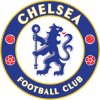Didier Drogba
Thumb

Image Source
User Rating
Data Complete 90%
Born
1978 (47 years old)
Position
Centre-Forward
Status
Retired
Ethnicity
Black
Team Number
Height
189 cm
Weight
83 kg
Outfitter
Kit
Market Value
Free
Wage Year
Player Manager ID
6201102
Player Cutout

Player Cartoon
Full Body Render

Sport
Team
_Retired Soccer
2nd Team
League
_No League Soccer
Creative Commons Artwork
Didier Yves Drogba Tébily (French pronunciation: ; born 11 March 1978) is an Ivorian former professional footballer who played as a striker. He is the all-time top scorer and former captain of the Ivory Coast national team. He is best known for his career at Chelsea, for whom he has scored more goals than any other foreign player and is currently the club's fourth highest goal scorer of all time. Drogba was named Chelsea's greatest ever player in a poll of 20,000 fans conducted by Chelsea FC Magazine in 2012, and he was also named in the Chelsea team of the 2010–2020 decade by Chelsea's fans in 2020. Regarded as one of the greatest African players of all time, he was noted for his physical strength, speed, ability in the air, powerful and accurate strikes, and ball retention. Drogba was named African Footballer of the Year twice, winning the award in 2006 and 2009.
After playing in youth teams, Drogba made his professional debut aged 18 for Ligue 2 club Le Mans, and signed his first professional contract aged 21. After finishing the 2002–03 season with 17 goals in 34 appearances for Ligue 1 side Guingamp, he moved to Olympique de Marseille, where he finished as the third highest scorer in the 2003–04 season with 19 goals and helped the club reach the 2004 UEFA Cup Final.
In July 2004, Drogba moved to Premier League club Chelsea for a club record £24 million fee, making him the most expensive Ivorian player in history. In his debut season he helped the club win their first league title in 50 years, and a year later he won another Premier League title. His displays saw him named in the FIFA World XI for 2007. In March 2012, he became the first African player to score 100 Premier League goals. Just two months later, he scored in Chelsea's 2012 FA Cup Final win over Liverpool to become the first (and as of 2017, the only) player to score in four separate FA Cup finals. He also played in the 2012 UEFA Champions League Final, in which he scored an 88th-minute equaliser and the winning penalty in the deciding shoot-out against Bayern Munich. After spending six months with Shanghai Shenhua in China, and one and a half seasons with Turkish club Galatasaray where he scored the winning goal in the final of the 2013 Turkish Super Cup, Drogba returned to Chelsea in July 2014. With a career record of scoring 10 goals in 10 finals winning 10 trophies at club level, Drogba has been referred to as the "ultimate big game player". He joined Canadian club Montreal Impact in 2015 as a Designated Player and played 41 matches over two seasons, scoring 23 goals. Drogba became a player–owner for Phoenix Rising of the United Soccer League in 2017, and retired a year later at the age of 40. On 21 April 2022, he was inducted into the Premier League Hall of Fame.
An Ivory Coast international between 2002 and 2014, Drogba captained the national team from 2006 until his retirement from the Ivory Coast team and is the nation's all-time top goalscorer with 65 goals from 105 appearances. He led the Ivory Coast to the 2006 FIFA World Cup, their first appearance in the tournament, and also scored their first goal. He later captained the Ivory Coast at the 2010 and 2014 FIFA World Cups. He was part of the Ivory Coast teams that reached the final of the Africa Cup of Nations in 2006 and 2012, but were beaten on penalties on both occasions. On 8 August 2014, he announced his retirement from international football. In 2018, Drogba retired from professional football at the age of 40.
Active in social issues in Africa, Drogba played a vital role in the peace process in his home country. In 2007 he was appointed a Goodwill Ambassador for the United Nations Development Programme, and in December 2018 he became Vice President of the international organization Peace and Sport.
As the talisman of the team Drogba contributed to the Ivory Coast qualifying for its first ever FIFA World Cup, held in Germany in 2006. Following the victory over Sudan that clinched World Cup qualification he also played a pivotal role in helping to end the Ivorian civil war by making an impassioned speech to the camera which resulted in a cease fire.
In February 2006, Drogba captained the Ivory Coast to their second Africa Cup of Nations final, scoring the only goal in their semi-final match with Nigeria and putting away the deciding spot-kick in their record-tying 12–11 penalty shootout quarter-final win over Cameroon. However, they lost in the final to Egypt 4–2 on penalty kicks after a 0–0 draw, with Drogba's shot being stopped by Egyptian goalkeeper Essam El Hadary.
At the 2006 FIFA World Cup, the Ivory Coast were drawn in a "group of death" with Serbia and Montenegro, the Netherlands and Argentina. On 10 June 2006, Drogba scored the first World Cup goal of his career and of his country's history in the opening game against Argentina, but his team lost 2–1. The Ivory Coast were eliminated from the World Cup after their next game, a 2–1 defeat to the Netherlands, but came from 0–2 down to win against Serbia and Montenegro 3–2 in their final group game, with Drogba watching from the sidelines following suspension after picking up a yellow card in the previous two games.
In the 2008 Africa Cup of Nations, the Ivory Coast were drawn in a group with Nigeria, Mali and underdogs Benin. Drogba scored two goals in the group stage, opening the scoring in the 4–1 win over Benin, as well as in the 3–0 win over Mali. In the quarter-finals, Drogba was on the score sheet once again in the 5–0 win over Guinea with the last four goals coming in the final twenty minutes. The semi-final was a rematch of the 2006 final against Egypt, but it was to be the end of the road for Drogba and the Ivory Coast, losing 4–1 to the eventual champions. On 9 February, Drogba lost 4–2 to hosts Ghana and thus ended their run in the playoffs.
Drogba scored six goals in five qualification games to help the Ivory Coast qualify for the 2010 FIFA World Cup. In the 2010 Africa Cup of Nations Drogba scored one goal in the 3–1 victory against Ghana in the group stage. The Ivory Coast reached the quarter-finals but lost 2–3 to Algeria. In March 2010, he was named as the 2009 African Footballer of the Year, his second time winning the award in his career.
On 4 June 2010, Drogba was injured in a friendly match with Japan. He received the injury in a high challenge from defender Túlio Tanaka. He fractured the ulna in his right arm and had an operation the next day in the hope of making the finals. On 15 June 2010, Drogba was cleared by FIFA to play in the Ivory Coast's first group game against Portugal wearing a protective cast on his broken arm. The match ended in a goalless draw at the Nelson Mandela Bay Stadium with Drogba coming on in the 65th minute. On 20 June 2010, Drogba became the first player from an African nation to score against Brazil in a World Cup match, scoring with a header in the 78th minute as the Ivory Coast were defeated 1–3. On 25 June 2010, the Ivory Coast went out of the competition despite winning 3–0 against North Korea in their final match.
In the 2012 Africa Cup of Nations, the Ivory Coast were drawn in a group with Sudan, Angola and Burkina Faso. Drogba scored the first goal for his team in the tournament against Sudan and his only goal in the group stage. In the quarter-finals, Drogba scored twice in the 3–0 win over Equatorial Guinea but he missed a penalty kick where he could have scored hat-trick in the match and tournament. He did not score in the semi-final in which the Ivory Coast beat Mali 1–0. In the final against Zambia, Drogba missed a penalty kick in the last 15 minutes of the game, which ended with their loss for the second time by penalty shootout.
In June 2014, Drogba was named in the Ivory Coast's squad for the 2014 FIFA World Cup. He won his 100th international cap in a pre-tournament friendly against Bosnia and Herzegovina, scoring a penalty kick in his side's 2–1 loss on 2 June. In the Ivory Coast's opening match, he appeared as a second-half substitute with the team trailing 1–0 to Japan. Within five minutes of Drogba's arrival, Les Éléphants scored twice to win the match 2–1. On 8 August 2014, Drogba announced his retirement from international football with a record of 65 goals in 105 appearances.
Drogba was married to Lalla Diakité, a Malian woman whom he met in Paris, and the couple had three children together. His eldest son, Isaac, was born in France in 1999, grew up in England and has played in the Chelsea academy system. He signed for French club Guingamp in February 2018. Drogba has two younger brothers who are also footballers: Joël and Freddy Drogba. Freddy, born in 1992, joined French Ligue 1 side Dijon FCO, and played for the youth team. He is a devout Roman Catholic. His uncle, Michel Goba, is also a professional footballer and Ivorian international, and his cousin Kévin Goba (Michel's son) is a professional footballer who played in the lower leagues of France. In a statement posted on Instagram, Drogba confirmed his divorce with his wife Lalla, adding that it was a mutual agreement between the two. “I'm not in the habit of discussing my private life. But because of speculation in the media today, I can confirm that sadly, after 20 years together, Lalla and I took the difficult decision to separate last year... We remain very close and our main priorities have been to protect our children and our family's private life. May God bless you.”![]()
![]()
Trophies ![]()
 English Premier League… |  English Football League… |  English Premier League |  Turkish Super Lig |
Milestones
 English Premier League… 2010-08-14 |  UEFA Champions League… 2003-10-01 |
Former Youth Teams

1997-1998 |
Former Senior Teams

1998-2002 |

2002-2003 |

2002-2014 |

2003-2004 |

2004-2012 |

2012-2013 |

2013-2014 |

2014-2015 |

2015-2017 |

2017-2018 |
Former Club Staff
Contracts
Fanart




Player Poster
Banner

News Reports
None found...
Collections
None found...
Statistics
Other Links
WikiData |

